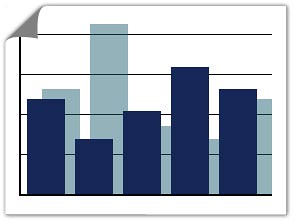
"History repeats itself, first as tragedy, second as farce." -- Karl Marx
It's unclear whether we're in the tragic stage or the farcical stage, but here's the gist of the blogger round table.
There wasn't a much earth shattering news made at last night's sit down with interim GM Richard Sarles, and unlike after the last blogger meeting, it's unlikely we'll be reading about Sarles' resignation today.
Here are a few takeaways:
- Automatic Train Control is a long way off. Continue to bring your sea legs, cat-like reflexes and patience to your commute.
- The escalator improvement project still seems rather nebulous, and it's hard to see just exactly what is meant by "greater accountability." Outside consultants are going to study how escalators are "fixed," and Metro elevator/escalator teams are going to be assigned groups of stations for which they're responsible. What happens when they fail is unclear. Our guess: Frequent Metro use will result in tighter quads.
- Sarles' role is basically as a Band-Aid until a permanent replacement can be found. It's sad that a man with his experience and acumen will have such a limited role in a system that could really use him, but the guy has had a long career, and an LTR with WMATA can't be appealing at this point. It's more of a FWB relationship, and that's cool.
- Sarles repeated his mantra that his three priorities are: safety, reliability, financial stability on the capital and operational side, but you've already read about that.
- While it's understandable that a short term, interim GM might not be concerned with the past, past is prologue, and the next GM would do well to study WMATA history. Yes, funding has led to some of Metro's slide, but there are other items in Sarles' six-month safety plan that seem like "subway 101" to us. Those include an incident tracking system, encouraging near miss reporting, introducing a safety hotline and adjusting schedules based on modern day loads. When asked about this Sarles gave a rather pat answer that he's looking toward the future. Fair enough. He's not sticking around, but Unsuck thinks the next GM would be well served to study the past and how WMATA found itself in its current crapstastic state. Sarles said it would be "years" until Metro "turns around."
- Metro, as is, will reach capacity within 15-20 years.
Other items:
Md. governor slams Metro safety record (WTOP)
What matters about Metro (WaPo)
Metro facing heat from latest mishap (Examiner)
Union presses Metro for 40 mph speed limit (Examiner)









 Oct. 11, 2012
Oct. 11, 2012 February 21, 2012
February 21, 2012 March 4, 2010
March 4, 2010





6 comments:
Metro is not at capacity now? What do they mean by the term if it has a different definition than what everyone else uses?
What he was getting at is Metro stations can only handle 8-car trains, nothing longer. The current system can only grow so much.
Alternatively, in 15-20 years, Metro will have completely imploded due to horrific negligence and everyone will have to resort to driving again!
I wish that Sarles and his compadres would take a trip to Istanbul and sit down with their Metro operating staff; what they've done there is nothing short of astonishing for a population which significantly outnumbers that of DC. Then, onto Barcelona, and then Montreal.
Why don't we get it? What's so hard about this?
Oh, that's right, we worship fossil-fuel-guzzling cars.
That's shortsighted. The most obvious improvement we need is a 4 track system. But I guess we have to leave that to the new permanent GM and Congress.
Obama certainly hasn't taken Metro recently.
"The most obvious improvement we need is a 4 track system."
That's way too expensive and it's never gonna happen. I would however like WMATA to look carefully at CTA in Chicago and realise that having crossovers every mile, and before and after every station means that if you have a "down train", at most a tiny segment of track is out of commission, instead of the miles and miles and miles and frakking miles of single tracking. That's cheap, and totally doable with the capital budget they have.
Post a Comment